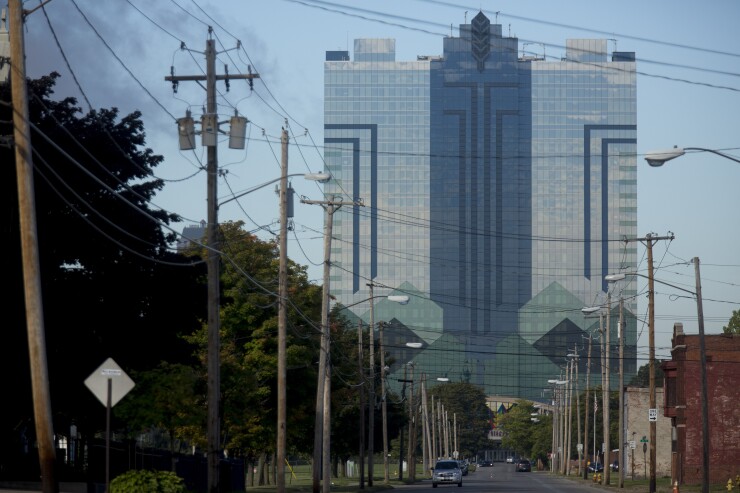An arbitration decision against the Seneca Nation of Indians for terminating a New York State revenue-sharing agreement provides an important infusion to cash-strapped Niagara Falls, according to Moody’s Investors Service.
A three-person arbitration panel ruled 2-1 that the Seneca Nation was wrong to halt its casino revenue-sharing payments in 2017 to the host municipalities of Niagara Falls, Buffalo and Salamanca. The ruling announced on Jan. 8 orders the tribe to make all past due payments and pay all future revenue sharing. Moody's called the ruling a credit positive for the three cities in Western New York because of the back payments they will now receive along with future revenues.

Moody’s analyst Robert Weber noted in a Jan. 17 report that Niagara Falls is most heavily reliant on Seneca Nation revenue-sharing funds to support its operations. The city’s annual operating budget includes roughly $13 million in Seneca payments, which equates to 14% of total revenues. Budget challenges from lost casino revenue drove Moody’s to downgrade Niagara Falls one notch to Baa3 with a negative outlook in October 2017.
Weber noted that while Salamanca is even more dependent on casino payments with approximately 50% of its operating revenues deriving from the Seneca Nation, the city has more “robust” reserves than Niagara Falls. Salamanca is unrated by Moody’s.
“Both cities had limited ability to offset the decline in Seneca Nation revenues, with neither having sufficient available taxing margin to offset the loss of casino revenues with property tax revenues, “ Weber wrote. “Permanent loss of these revenues would have required steep cuts to services or financial assistance from the state.”
New York State pledged a one-time $12.3 million payment to Niagara Falls last fall to offset the disputed casino revenue sharing losses. Moody’s noted in an Oct. 4 report that absent state assistance, the city would likely have depleted its internal liquidity around the end of the 2019 fiscal year. S&P Global Ratings and Fitch Ratings both rate Niagara Falls general obligation bonds one notch above Moody’s at BBB with a negative outlook.
“This takes a burden off of us that we've been bearing for some time," said Mayor Paul Dyster at a press conference after the ruling was announced. "What we're most interested in now is taking not about the past, but in talking about the future."
Buffalo received around $7 million annually from Seneca casino payments, which comprises 1.7% of the city’s overall budget. Despite the small number, Weber notes that Buffalo, which Moody’s rates A1 with a stable outlook, has struggled to maintain balanced operations and that any loss of recurring revenue can present budgetary challenges. The city’s 2019 budget allocates $17 million in Seneca payments to reflect the current-year’s agreement and what is owed previously.
The casino agreement stems back to 2002 when New York State awarded the Seneca Nation exclusive rights to operate three casinos in Western New York in exchange for up to 25% of slot machine revenues to be split between the host municipalities and the state. Under the compact, which is set to expire in 2023, the tribe remits revenue-sharing payments to the state, which then distributes the funds to the three localities.





